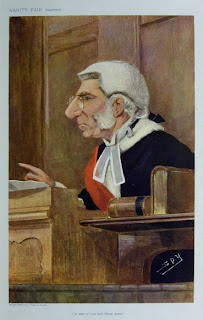A Portuguese man who shot his wife dead on board a British steamer was sentenced to death but had his sentence commuted to life imprisonment
On 5th February 1914 newly married couple Alberto Coelho and Josephine Quelhas set sail from Lisbon bound for Rio on board the Royal Mail steamer Deseado. The voyage to South America had began in Liverpool. Coelho was a confectioner and also man of substance who owned a substantial amount of property in Brazil. However Josephine had only agreed to go there with him if they were married.
Travelling in first class accommodation, they appeared happy but soon it became apparent that all was not well. At around 1230pm on 7th February, when the vessel was 170 miles west of Madeira, Josephine Coelho was sat alone in the social hall. Her husband came in and shouted 'You have made me miserable' before shooting her twice from point blank range. A cellist named Francis Chamberlain pulled Josephine from under the table where she had fallen and found there was a bullet wound in each breast. The ship's surgeon, Dr Segar was called but he confirmed that Josephine was dead and there was no hope of recovery.
Two brave passengers managed to restrain Coelho, who was a well built man, on deck. He showed no resistance as he was put in irons and placed in a guard room. That evening Josephine was buried at sea in a service attended by most of the crew and passengers.
On arrival in Rio two weeks later, Coelho was handed to the British consul who wanted nothing to do with him. He was then taken to a local jail and held there until the Deseado began her return voyage to Liverpool. When the vessel arrived there on 31st March Coelho was arrested and responded through an interpreter 'I intended to kill myself but in Rio they say that I am mad.' Respectably dressed and sporting his thick dark moustache, 32 year old Coelho was initially remanded for a week by magistrates.
The Daily Post reported that Coelho had a dejected appearance as he stood in the dock at the police court a week later. The court first heard that Dr Segar was offered expenses of £3 per day but refused to come from London to give evidence unless he was subpoenaed. The magistrate then gave orders for a summons to be issued. Francis Chamberlain then gave evidence as to Coelho shooting his wife from a range of abut one yard. This was corroborated by a bandmaster named Harry Akers.
On 14th April the police court proceedings resumed with Dr Segar in attendance. He claimed not to have received a message about attending court then went on to say that death was as a result of a bullet to the heart. Coelho was committed to the assizes for trial and chose to reserve his defence.
Coelho appeared before Justice Bray on 24th April. His defence counsel Mr Rigby Swift did not dispute the facts of the case. Instead, it was suggested simply that no sane man who was happy with his wife could have shot her in broad daylight in front of three or four witnesses. The prisoner's brother Carlos was called to give evidence that he had suffered delusions. He stated that Coelho had neglected his business and often walked aimlessly around Rio saying he was being followed by a large dog. Carlos said that the family were not happy with the marriage to Josephine, who he described as a woman of 'loose character.'
Dr Griffiths from Walton Gaol said that he had not found Coelho to be showing any signs of insanity. Instead he was described as perfectly rational although he had claimed to have no recollection of the killing until he woke up in irons. After an impassioned plea by Mr Rigby Swift that Coelho was not responsible for his actions the jury retired, but after an hour found him guilty of murder.
On being told of the verdict Coelho replied that Josephine had wanted to put him in an asylum on arrival in Rio. After Justice Bray had passed the death sentence he put his head in his hands and made a remark in Portuguese, before being quickly taken down below.
News of the sentence created shockwaves in Coelho's native Portugal, where nobody had been executed since 1846. On 28th April a demonstration organised by the League of Defence for the Rights of Man in Lisbon was attended by 40,000 people who called upon Prime Minister Bernardino Machado to intervene. He issued a statement however saying that he could not interfere with English law.
On 11th May at the Court of Criminal Appeal Mr Rigby Swift argued that the verdict was unreasonable in line with the evidence. He argued that doctors who had attended to Coelho whilst under guard and in Rio had not been called, but the appeal was dismissed by the Lord Chief Justice who said 'You have no evidence here that the condition of his mind was such that he could not control his actions.' However he did go on to offer some hope, saying that the Home Secretary had the power to exercise a prerogative and that this was a case he thought fit to do so.
The comments of the Lord Chief Justice were enough to have the execution, set for 14th May, deferred. On that day Joseph Spooner was hanged at Walton Gaol for the murder of his daughter in Edge Hill, but communication was received that Coelho's sentence had been commuted to life imprisonment.



No comments:
Post a Comment